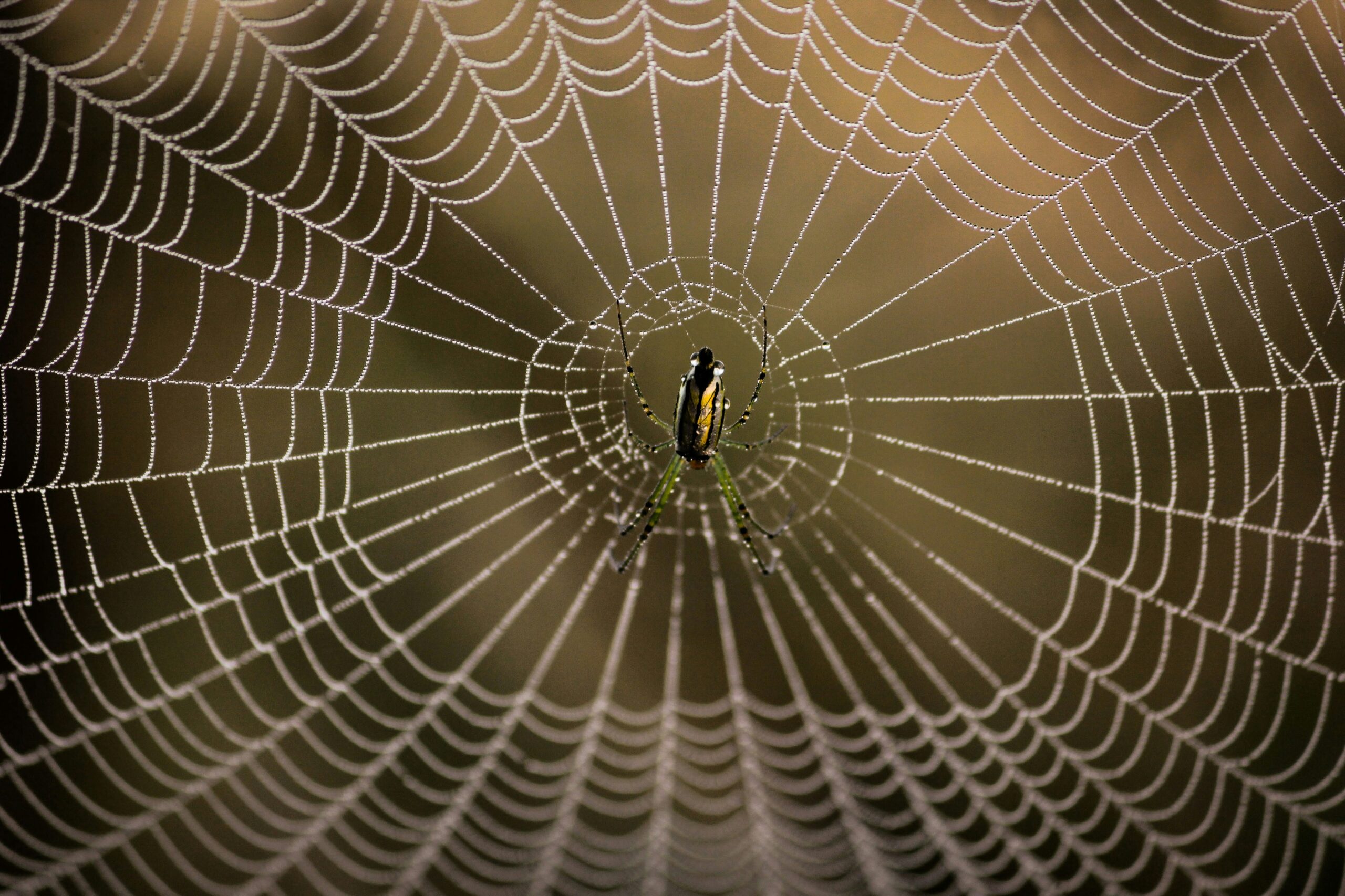Spider silk is one of the strongest materials found in nature. The elasticity and tensile strength is five times as strong as steel. It is even a vital material for bulletproof vests and fishing nets.
Of course, sourcing silk in the wild is difficult, so scientists have used artificial synthesis for many years with varying degrees of success. However, Rensselaer Polytechnical Institute (RPI) researchers say they have developed a sustainable method of creating artificial silk.
RPI is running a project that turns plastic waste into biodegradable spider silk to be used in multiple applications. The institute says it is nontoxic, biodegradable, and highly sustainable.
It may be a legitimate alternative to other artificial silk processes and one that cuts down on the plastic waste problem plaguing the globe.
Bacteria break down plastic into a wax-like material using a depolymerization process, avoiding toxic chemicals and high energy consumption. This effort is the first time such a method has been attempted.
“Essentially, the bacteria are fermenting the plastic,” Mattheos Koffas, Ph.D., Dorothy and Fred Chau ʼ71 Career Development Constellation Professor in Biocatalysis and Metabolic Engineering and a researcher leading the project, said to Rensselaer News. “Fermentation is used to make and preserve all sorts of foods, like cheese, bread, and wine, and in biochemical industries, it’s used to make antibiotics, amino acids, and organic acids.”
Photo Courtesy RPI/Dakota Pace
RPI scientists hope this will lead to breakthroughs in eco-friendly medical products like sutures, artificial ligaments, and tendons. Some medical scientists are hopeful it will help regenerate nerves and tissue.
“Spider silk is nature’s Kevlar,” said Helen Zha, Ph.D., an assistant professor of chemical and biological engineering and one of the RPI researchers leading the project. “It can be nearly as strong as steel under tension. However, it’s six times less dense than steel, so it’s very lightweight. As a bioplastic, it’s stretchy, tough, nontoxic, and biodegradable.”
There is hope that spider silk will also lead to innovations in clothing. The biodegradable properties are encouraging, meaning there is a new way to reduce garment waste and fast fashion.
Spider silk can also be utilized for optical lenses, biodegradable electronics, and advanced computer chips.
Photo Courtesy Vishnu Mohanan
Depolymerization is a common practice in the recycling of plastic. Last year, scientists at Cardiff University said they developed a process using depolymerization to recycle colored plastic bottles. Additives and colorants can’t be removed in recycling, but depolymerization can make new plastic without the colors. The process isolates molecules called monomers to eliminate them from the new product.
“We’ve addressed this in our study by taking colored polymers, unmaking them, isolating the monomers, and re-making them into pure, white polymers,” Dr. Ben Ward, senior lecturer of inorganic chemistry at Cardiff University, said in a Cardiff University news article. “This is the first time that has ever been achieved and it goes right to the heart of tackling the problem of plastic recycling.”
Material that can recycled or composted is vital to creating the circular manufacturing economy. Several non-governmental organizations and environmental action groups believe in the circular economy theory, but implementing one requires advancements in recycling and upcycling inorganic materials. At first, the focus was on clothes and the polymers associated with cheap clothing; however, it has expanded to shoes, timber, and steel.
Artificial spider silk made from plastics tackles the issue of reducing landfill waste. However, it will be a few years before it is at a scale large enough for the American healthcare system to utilize for medical supplies. Maybe we’ll see a Kevlar suit using this product. I’m sure Peter Parker will give RPI a ring soon.





